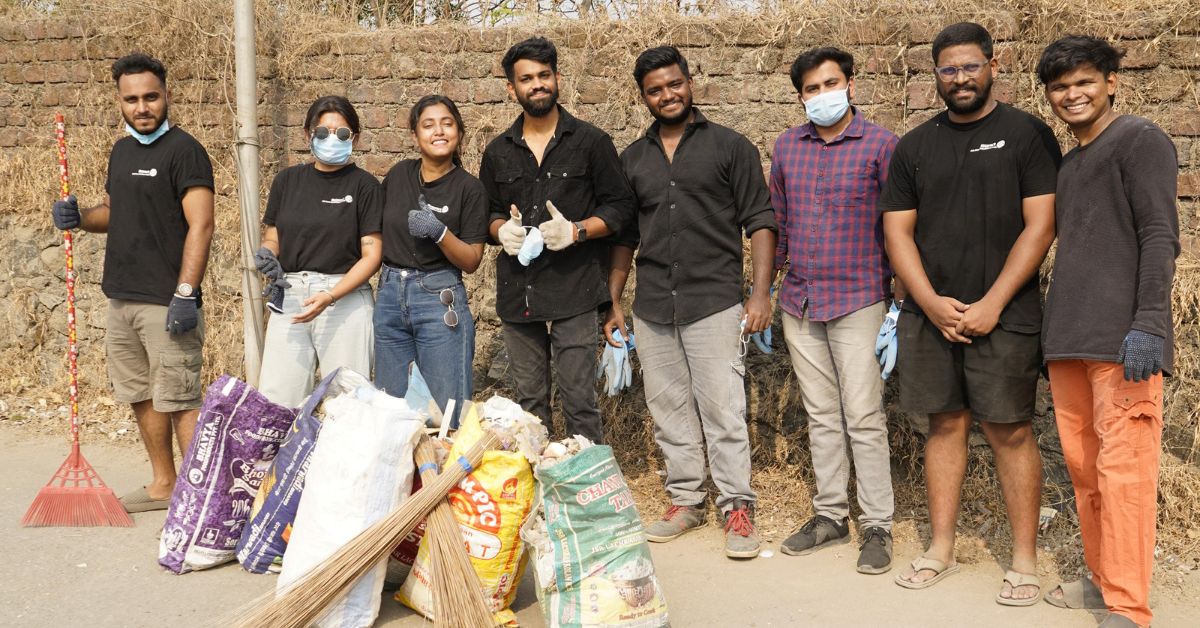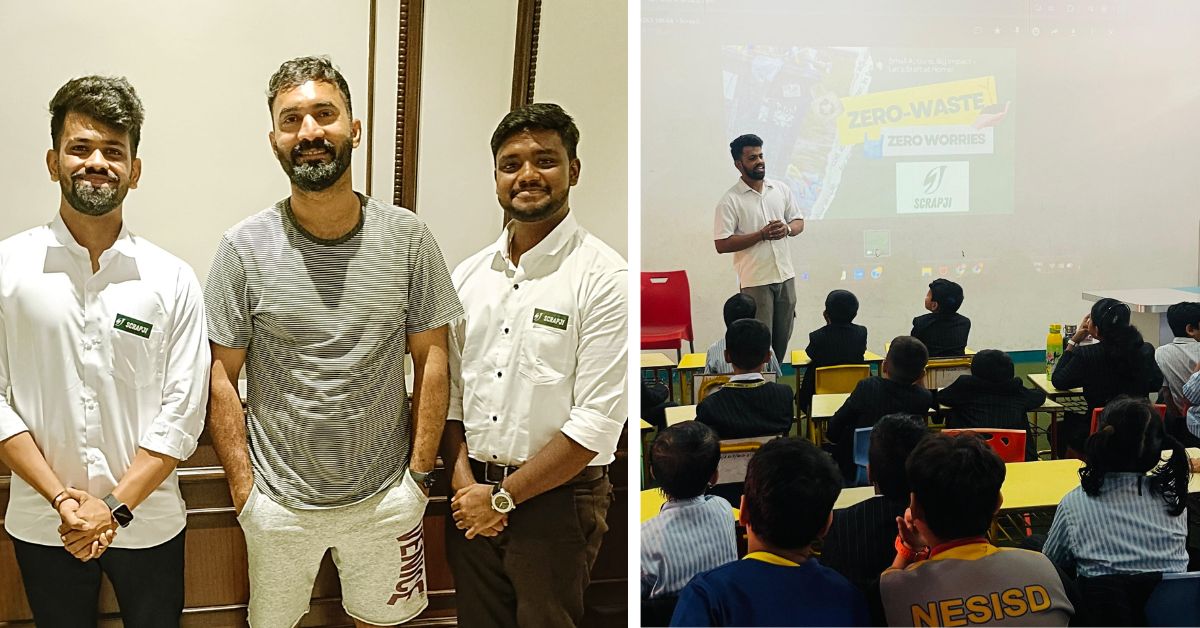2 Friends Grew up Watching a Kabadiwaala — Today, Their Mumbai Startup Recycles 10000 KG of Waste Monthly
In India, waste workers and kabadiwaalas often go unnoticed — their contributions buried under the very trash they help clean. Society tends to look down upon them, rarely acknowledging the back-breaking work they do to keep our cities from drowning in waste. Yet, without them, our overflowing bins and choked landfills would be far worse.
But for two young boys growing up in Thane, Maharashtra, one kabadiwaala was nothing short of a hero.
Henik Gala and Shreyas Jalapur were classmates when they first noticed the local scrap dealer working across from their school. While most kids rushed home, the duo would linger, watching him sort, weigh, and cart off piles of discarded materials. “He was solving a real problem,” Henik recalls. “That stuck with us.”
Over time, their admiration turned into a shared mission. Years later, in 2023, now 26 years old, the two friends launched ‘ScrapJi’, a tech-enabled scrap collection startup recycling 10,000 kg of trash every month.
Traditional scrap collection, with a twist
At first glance, ScrapJi functions similarly to your regular kabaadiwaala: collecting newspapers, plastics, metal and e-waste from households. But look closer, and you’ll find a tech-powered model that’s bringing order and dignity to the industry.
 ScrapJi, in a tie-up with third-party recyclers, ensures the waste doesn’t end up in landfills.
ScrapJi, in a tie-up with third-party recyclers, ensures the waste doesn’t end up in landfills.
Through their website or WhatsApp, customers can schedule a doorstep pickup at their convenience. Trained pickup executives arrive, weigh the scrap, and pay customers on the spot based on current market rates. The collected material is then sorted and sent to authorised recycling centres, ensuring transparency and accountability throughout the process.
“We wanted to fix the gaps in the traditional system,” says Shreyas. “Often, scrap collectors don’t return because their cart is full or the price isn’t right. We’ve eliminated that uncertainty with tech and reliable service.”
Making waste management aspirational
With over 2,000 regular customers and a monthly recycling output of 10 tonnes, ScrapJi is now gaining attention. Even cricketer Dinesh Karthik has joined the movement, not just as a brand ambassador, but as an equity partner, a rare move that shows belief in their long-term vision. His support has opened doors to funding and government engagement.
ScrapJi currently works with seven third-party recyclers, conducts 10-15 pickups a day, and has already crossed Rs 25 lakh in revenue this financial year. With sights set on Rs 1 crore by 2025, Henik and Shreyas are scaling their model while staying true to their values: transparency, sustainability, and respect for the people behind the work.
A trash-free India by 2030?
“Our dream is a trash-free India by 2030,” Henik says. “But we know it can’t happen without involving the community and the original kabadiwaalas.” Their plans include integrating local scrap dealers into their network, giving them access to tech, training, and better pay.
 ScrapJi focuses on expanding its reach this year to achieve its mission in 2030.
ScrapJi focuses on expanding its reach this year to achieve its mission in 2030.
“We want to change the perception of this industry. Today’s youth should feel proud to say they work in waste management,” Shreyas adds.
If two friends can recycle 10,000 kgs of waste every month, just imagine what millions can do with a little inspiration and a lot of hard work.
Edited by Vidya Gowri Venkatesh; All images credit ScrapJi
News